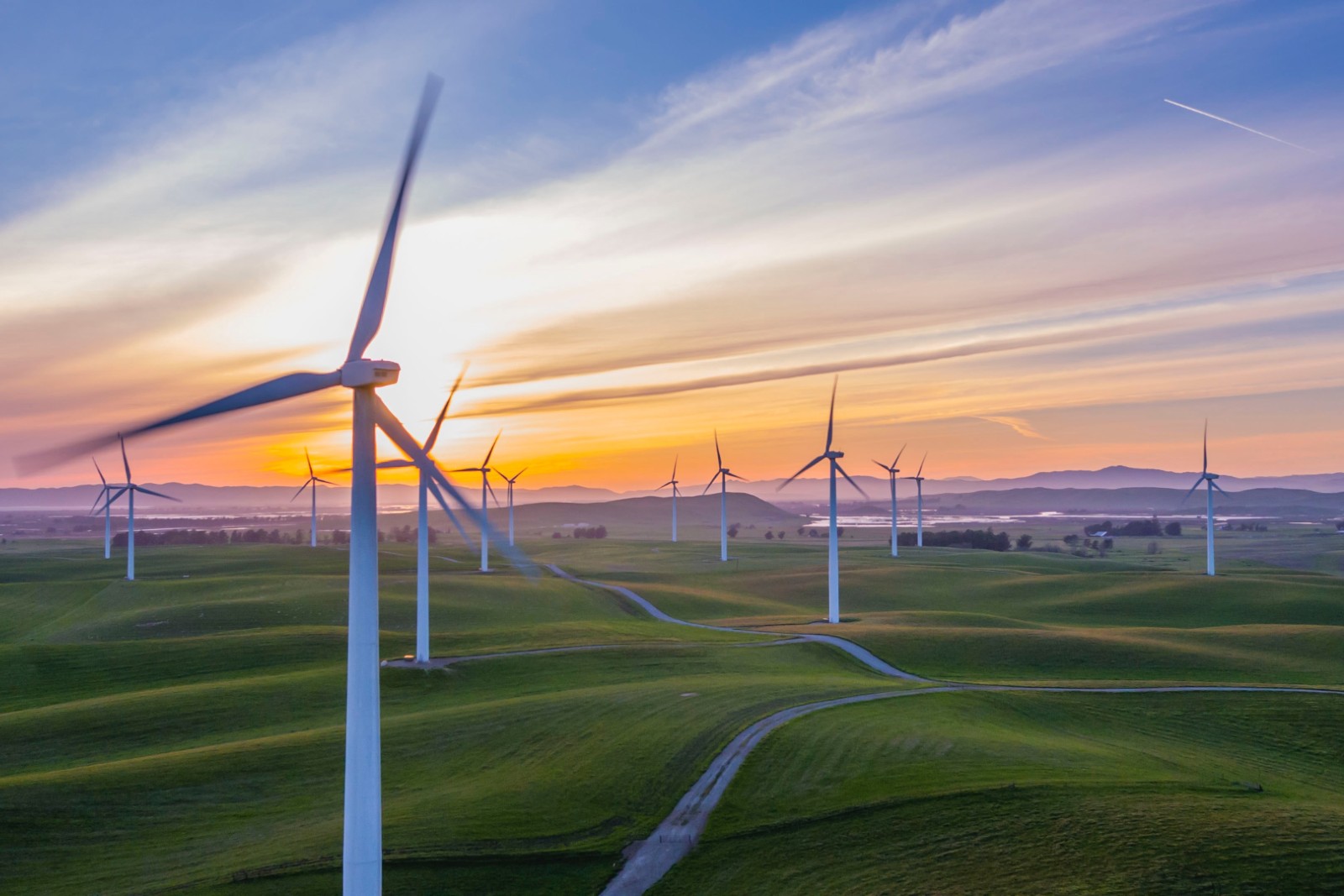In the final Capitas Green Briefing of the year, we’re recapping some of the biggest sustainability stories of the last 12 months.
The year of climate action got off to a flying start as it was revealed in January that renewable energy had overtaken fossil fuels as the UK’s main energy source in 2020, accounting for 42% electricity produced. The analysis by think-tank Ember, also showed that gas generation was at a five-year low, whilst coal power had dropped from 23% of electricity generation in 2015 to just 2%.
February bought news that support for the UK’s green industrial revolution was growing. A survey by the Politics of the Environment and Climate Change (PECC) lab at Royal Holloway, University of London, showed 64% supported Boris Johnson’s Ten-Point Plan – launched the previous November – whilst only 15% said they actively opposed it. However, in the same month the Environmental Audit Committee (EAC) said whilst the plan pointed in the right direction, it called for greater investment in energy efficiency, as well as VAT reductions to actively encourage this.
In delivering his Budget for 2021 in early March, Chancellor Rishi Sunak reiterated the UK’s commitment to green growth. In his speech he announced at least £15 billion in green bonds to help finance the transition to net zero and the launch the world’s first sovereign green savings bond for retail investors.
By April, the UK government set the world’s most ambitious climate change target into law. The sixth Carbon Budget seeks to reduce emissions by 78% by 2035 compared to 1990 levels, bringing the UK more than three-quarters of the way to Net Zero by 2050. Prime Minister Boris Johnson said at the time: “We want to continue to raise the bar on tackling climate change, and that’s why we’re setting the most ambitious target to cut emissions in the world.”
There were calls from RewnewableUK in May for the Government to commit to specific renewable energy targets. It argued that the new target of slashing emissions by 78% by 2035, and reaching net zero emissions by 2050, could only be achieved by setting out clear milestones for2030.
The G7 nations gathered in Cornwall in June, with climate change one of the key discussion points. Leaders agreed to step up their action by moving away from coal power and help developing countries on their journey.
By July, the long-awaited UK Infrastructure Bank finally opened for business, with Chancellor of the Exchequer Rishi Sunak hailing it as an opportunity to accelerate ambitions for tackling climate change whilst supporting local growth. Initially £12 billion of capital will be made available, with the bank able to issue £10 billion of Government guarantees, helping to unlock more than £40 billion of overall investment.
The Government launched its Hydrogen strategy in August to further drive forward the commitments of the Ten Point Plan. Analysis suggests that up 30% of the UK’s energy consumption by 2050 could be hydrogen-based, therefore making it critical to meeting both the 2050 net zero tagrte and cutting emissions by 78% by 2035. It is hoped that a booming hydrogen economy could unlock £4 billion investment by 2030.
Businesses are key to reducing carbon emissions. But in September a report delivered by Zurich UK and the University of the West of England (UWE) showed just how much needed to be done. The study of the 17 biggest sectors and plans for decarbonisation showed only five had been able to reduce emissions with the rest recording stable or increasing emissions. Continued inaction on this scale would put reaching net zero targets at risk.
Just days before world leaders gathered to discuss climate action, at the end of October the UK launched its Net Zero Strategy setting out how to deliver on the commitment to reach net zero emissions by 2050. The commitments made sought to unlock up to £90 billion of private investment and support 440,000 well-paid jobs in green industries, whilst £3.9 billion of new funding for decarbonising heat and buildings was also announced. Prime Minister Boris Johnson hailed the strategy saying it “sets the example for other countries to build back greener too as we lead the charge towards global net zero.”
All eyes were on Glasgow in November for the much anticipated COP26 Climate Summit. The aim was to keep 1.5C alive. The resulting Glasgow Climate Pact at the end of two weeks of intense talks, saw all countries agree to strengthen their Nationally Determined Contributions (NDCs) to 2030 by the end of next year. An action plan on phasing down the use of fossil fuels was also agreed, although there was frustration that this had been watered down from phasing it out completely.
Looking ahead, at the start of December, the International Energy Agency (IEA) reported that generation of renewable electricity was accelerating faster than ever on a global scale. Not only is 2021 expected to set a new record for new installations, but by 2026 global renewable electricity capacity is forecast to rise more than 60% from 2020 levels to over 4 800 GW – equivalent to the current total global power capacity of fossil fuels and nuclear combined.
Capitas Finance’s Chief Executive Officer Darren Riva comments: “It is evident that 2021 has been a year of climate action and we are moving towards a greener future. The launch of new strategies both here in the UK and on a global scale keeps the dream of 1.5C alive, but only if further action is taken without delay.
“There are still challenges ahead. Whilst the frameworks are in place, we must encourage businesses to take the necessary steps on the path to net zero. Giving business leaders the knowledge to understand the impacts they can have and giving them the tools to develop sustainability plans is just the first step. We must also help them overcome the barriers to being more energy efficient, of which lack of investment is often one of the biggest. In order to reach out 2035 targets we must act now and providing access to finance is vital.”
Capitas Finance specialises in financing energy solutions for carbon-conscious businesses and public sector organisations. Our products and services are designed to help you implement sustainable, low carbon technologies and strategies that save energy and reduce carbon emissions and align with the Government’s commitment to reach Net Zero by 2050. To find out how Capitas can work with you, drop us a line here.




